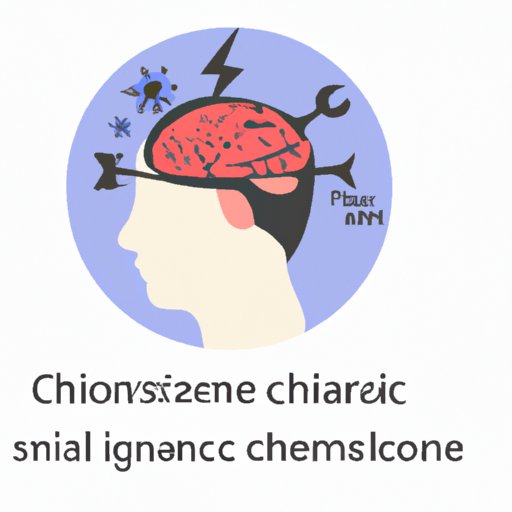
Introduction
Chronic small vessel ischemic disease of the brain is a prevalent condition that can lead to cognitive decline in older adults. As people age, their brain cells become more susceptible to damage from reduced blood flow, which can result in brain damage. This article aims to provide a comprehensive overview of chronic small vessel ischemic disease of the brain, with a focus on its causes, symptoms, diagnosis, management, and prevention. It is essential to understand this disease for those who have encountered it as it affects cognitive function and can lead to neurodegenerative disorders such as Alzheimer’s and Parkinson’s disease.
What is Chronic Small Vessel Ischemic Disease of the Brain: A Comprehensive Overview
Chronic small vessel ischemic disease of the brain is a condition that occurs when the small blood vessels that supply blood to the brain become narrowed or blocked. This reduced blood flow can cause brain cells to die or become damaged, leading to cognitive problems and neurological symptoms. A common cause of chronic small vessel ischemic disease of the brain is high blood pressure, which can cause the arteries in the brain to become thickened and narrow.
Understanding Chronic Small Vessel Ischemic Disease of the Brain: Causes, Symptoms, and Treatment
The causes of chronic small vessel ischemic disease of the brain include hypertension, diabetes, smoking, and high cholesterol. Other risk factors include age, family history, and a history of heart disease or stroke. Symptoms of the disease include cognitive problems, such as memory loss, attention deficits, and executive dysfunction. Physical symptoms may also occur, including dizziness, vertigo, and difficulty with balance.
The treatment of chronic small vessel ischemic disease of the brain aims to improve blood flow to the brain and prevent further damage. Medications such as antiplatelet drugs and anticoagulants may be used to prevent the formation of blood clots that can block blood flow. Lifestyle changes, including exercise, a healthy diet, and quitting smoking, can also help manage the disease.
How Chronic Small Vessel Ischemic Disease of the Brain is Diagnosed and Managed
Diagnostic tests commonly used to diagnose chronic small vessel ischemic disease of the brain include MRI and CT scans. These procedures allow doctors to see any areas of reduced blood flow or damage to the brain. Management strategies include lifestyle changes such as dietary modifications, regular exercise, and stress reduction techniques. Medications such as blood pressure-lowering drugs, cholesterol-lowering drugs, and diabetes medications may also be used to manage the disease.
The Impact of Chronic Small Vessel Ischemic Disease of the Brain on Cognitive Function
Chronic small vessel ischemic disease of the brain can cause cognitive problems, including memory loss, attention deficits, and executive dysfunction. These problems can significantly affect quality of life and the ability to perform daily activities independently. Research has shown that cognitive training exercises, physical exercise, and a healthy diet can help improve cognitive function in individuals with the disease.
Preventing Chronic Small Vessel Ischemic Disease of the Brain: Lifestyle Changes and Risk Factors
Strategies for reducing the risk of developing chronic small vessel ischemic disease of the brain include lifestyle changes such as exercising regularly, quitting smoking, and maintaining a healthy diet. Individuals with hypertension, diabetes, and high cholesterol should work closely with their healthcare providers to manage these conditions effectively. Reducing stress, maintaining a healthy weight, and getting enough sleep may also help prevent the disease.
A Personal Account of Living with Chronic Small Vessel Ischemic Disease of the Brain
Living with chronic small vessel ischemic disease of the brain can be challenging. One individual shares their experience, discussing the cognitive problems they faced and their journey to managing the disease. Coping strategies, including emotional and social support systems, play an essential role in managing the disease and improving quality of life.
Conclusion
In conclusion, chronic small vessel ischemic disease of the brain is a prevalent condition that affects cognitive function in older adults. Understanding the causes, symptoms, diagnosis, management, and prevention of this disease is crucial for those who have encountered it. Lifestyle changes, medication management, and cognitive training exercises can help manage the disease and improve quality of life. Maintaining a healthy lifestyle and working closely with healthcare providers can also reduce the risk of developing the disease.





